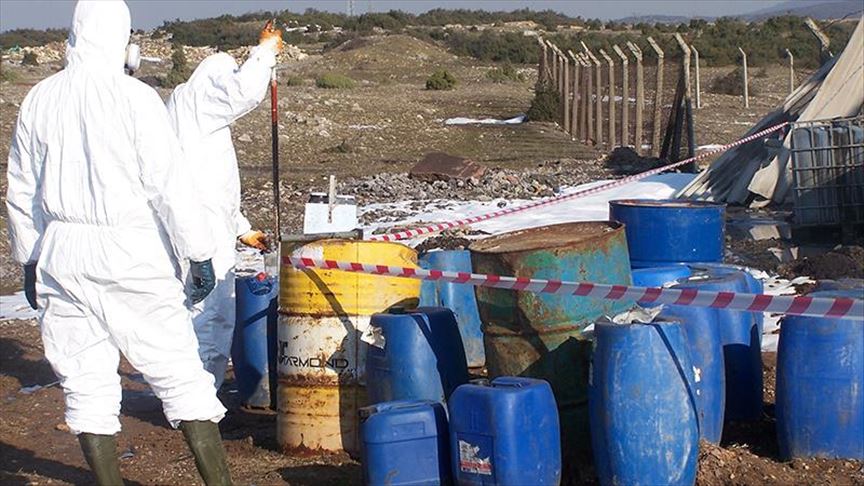31 years on, hazardous waste pact needs improving
Managing hazardous waste is important for human, environmental health, says expert on anniversary of landmark pact

ANKARA
Although 31 years have passed since the signing of the Basel Convention on hazardous waste, some analysts are still raising questions about how well the landmark deal works.
The Basel Convention on the Control of Transboundary Movements of Hazardous Wastes and Their Disposal was signed on March 22, 1989 in Switzerland in an attempt to eliminate the risks arising from the trans-boundary movements of hazardous and other waste.
The main impetus for the pact was preventing the transfer of hazardous waste from developed countries to less-developed ones.
The basic purposes of the convention are to ensure that states have the full ability to protect their own environment and to enable them to not permit actions which might have adverse effects on the environment.
However, the last 31 years have continued to see numerous transfers of hazardous wastes, such as e-waste and nuclear waste, around the world since few countries are willing to deal with these non-valuable, mostly non-recyclable, and dangerous types of waste within their borders.
While Agbogbloshie, in the West African nation of Ghana, is one infamous example of an e-waste dump, just last month Italy was accused of shipping hazardous plastic waste to Malaysia.
Due to these and similar incidents, the deal has been accused of "legalizing" hazardous waste traffic, by underdeveloped and developing countries and some environmental groups.
Weak controls
Hazardous waste, which poses substantial or potential threats to public health or the environment, is waste that contains at least one of the following characteristics; ignitability, corrosivity, reactivity, or toxicity.
"The Basel Convention is very important for the whole world, but the real issue is the control mechanism," Baran Bozoglu, head of the Climate Change Policy and Research Association, based in the Turkish capital Ankara, told Anadolu Agency.
Speaking to mark the 31st anniversary of the signing of the deal, he said that to prevent any violation on trans-boundary movements of hazardous wastes, control mechanisms should be tightened, because although international agreements are quite useful, their rules can be ignored.
Turkey’s ‘progressive approach’
Pointing to an example in Turkey’s Aegean region, he said: "There is buried radioactive waste near a lead plant in Gaziemir, Izmir which is not Turkey's own waste.”
Bozoglu added: “Although hazardous waste coming from abroad has been banned in Turkey, we can see those dangerous wastes can be buried."
He added that in Turkey, hazardous waste coming from abroad is prohibited not only under the Basel treaty but also as part of the country's own environmental law, which takes a "very progressive approach," he said.
Turkey has been a Party to the Basel Convention since 1994 and ratified its Ban Amendment in 2003.
In 2015, the Constitutional Court was petitioned over allegations of public officials’ "dereliction of duty" over the claims of buried radiation waste buried in Gaziemir, Izmir.
"Hazardous waste isn’t like packaging or organic wastes,” Bozoglu explained.
“Organic waste gets dissolved in nature and become part of nature without harming people. Since packaging waste has a value, it can be used through recycling. However, hazardous waste management is costly and its recycling is very limited."
Stressing the harm hazardous waste can do to human health such as skin and respiratory diseases, he said proper management of hazardous waste and doing an accurate inventory of existing waste are extremely important for both human and environmental health.
Anadolu Agency website contains only a portion of the news stories offered to subscribers in the AA News Broadcasting System (HAS), and in summarized form. Please contact us for subscription options.

